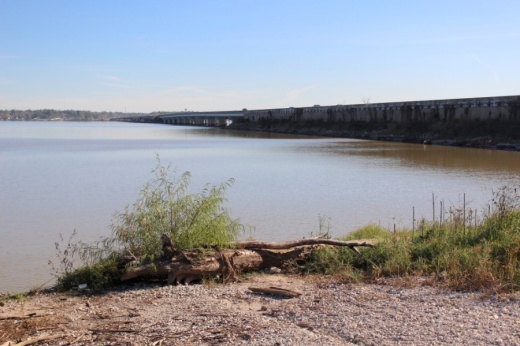Built-up sediment has been dredged from the lake and its tributaries since September 2018, an effort Houston Mayor Pro Tem Dave Martin, who represents District E in Kingwood, estimated had cost roughly $114 million as of mid-November.
"When [the lake] was built back in 1954, nobody thought about the impact of that the silt in the sand mining and things of that nature, and so we lost about 30% of our capacity," Huberty said.

A 2011 report from the Texas Water Development Board showed Lake Houston’s capacity to hold water had decreased by more than 20% since the lake’s dam was built in 1954. Additionally, a report conducted by the city of Houston shows more sediment was deposited during Hurricane Harvey—specifically, at the confluence of the lake and the West Fork of the San Jacinto River.
To address capacity issues in Lake Houston, Huberty said he will file a bill in February to create the Lake Houston Dredging and Maintenance District to oversee and fund long-term dredging in the lake and to clean up debris after storms.
The conservation and reclamation district would have the power to take out bonds to fund projects. The bonds would be paid through a fee charged to utility providers who purchase surface water from Lake Houston. Some Houston-area retail water providers include the North Harris County and West Harris County regional water authorities. This fee, in turn, could be passed down to residents' water bills, he said.
“If you don’t [dredge], you’re not going to have a water supply ... 50 years from now,” Huberty said. “What we’re doing is—we’re preserving this lake for the next 100 years.”
Seven officials would manage the district: three appointed by the city of Houston, three appointed by Harris County and one chair, Huberty said. The district would also hire staff and an executive director and would purchase barges and equipment to dredge the lake.
If the bill is passed in the session, he said, the district could be in effect sometime in 2022.





